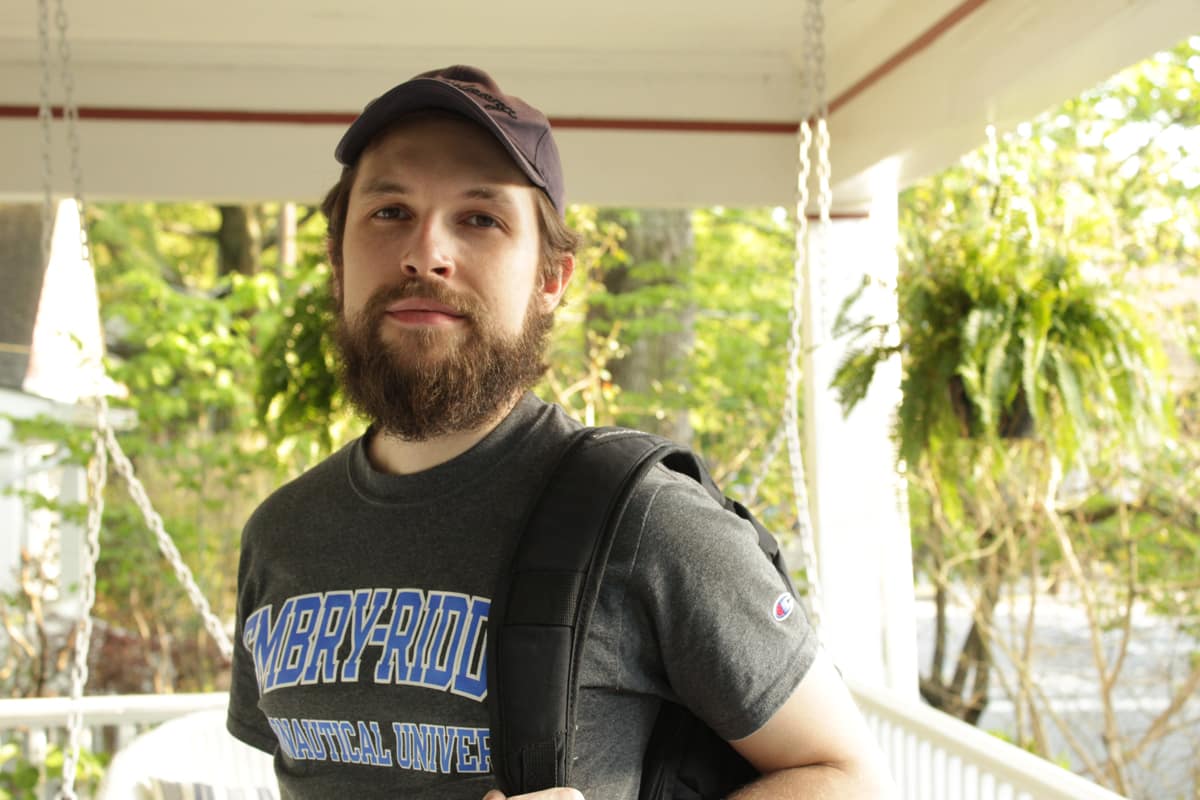Aviation English Programs Help Air Traffic Controller Find a New Voice

It took Brazilian native Lucas Miguel de Bail Ribas a while to find his own voice in aviation. Today, thanks in large part to his experience at Embry-Riddle Aeronautical University, Ribas is working to blend his language skills with his aviation experience to make flying safer for everyone around the globe.
After a decade as an air traffic controller in Brazil, Ribas is making a major career change in the wake of his participation in the Aviation English for Air Traffic Controllers training program offered through Embry-Riddle Aeronautical University’s Worldwide Campus.
“My connection to aviation English with inspiring professors at Embry-Riddle has led me to the decision to pursue a master's degree in Applied Linguistics at Georgia State University,” Ribas said.
What Aviation English Courses are Offered at Embry-Riddle?
Drawing on almost 100 years of aviation education and research, Embry-Riddle’s Aviation English Department combines language teaching expertise with operational familiarity to deliver programs that improve the English skills of aviation professionals and increase their awareness of current safety-related aviation topics.
It did all that and much more for Ribas, who took his first steps into aviation at the urging of his brother, Pedro. It was not always an easy road to walk.
“I believe the biggest challenge was right at the beginning, when my father passed away shortly before I started my air traffic control training,” Ribas said. “It was a really difficult moment, since he was one of the people who encouraged me to pursue this career. In addition, most controllers in Brazil also receive military training, so another challenge was adapting to military life, especially having been quite timid as a teenager. At the time, I did not really understand what I was getting myself into, but I knew it meant having a job and a way to support myself and my family.”
Developing a Passion for Linguistics
Ribas learned fast and discovered he had an aptitude and love for linguistics that allowed him to score the highest rating on the International Civil Aviation Organization (ICAO) language exam. He was soon teaching others the international language of aviation—a role that brought him directly to Embry-Riddle, which is among the acknowledged leaders in aviation English instruction.
“In 2018, through the Brazilian Department of Airspace Control (DECEA), I had the privilege of going on a mission to Embry-Riddle’s Daytona Beach Campus to participate in the Aviation English for Air Traffic Controllers training program,” Ribas said. “That first experience was nothing short of magical, and I remember waking up every day filled with energy and always with a big smile on my face.”
In 2021, Ribas reconnected with the university after he was invited to serve as a course monitor in the English for Air Traffic Control program and saw firsthand how Embry-Riddle constructed and delivered its renowned training programs.
“This allowed me to gain a deeper understanding of the behind-the-scenes work of designing and implementing an effective language program, as well as the importance of continuous evaluation and improvement,” Ribas said.
Recently, he also got involved in another Embry-Riddle research project called the Language as a Human Factor in Aviation Accident Investigation Database Review Project. Led by Professor Elizabeth Mathews—acknowledged among the world’s top aviation English experts—the project also includes airline captain Enrique “Rick” Valdes, Dr. Joan Carson and Althea Gibbons, and Ribas is working with the group to examine the role language has played in previous aviation accidents.
“We aim to support and enhance the investigation of Language as a Human Factor in Aviation (LHUFT) in aviation accidents worldwide,” he said.
Ribas did all of this while working full-time as an air traffic controller in Brazil, where he also trained other controllers and pursued his licentiate degree in Letras Inglês at the Federal University of Technology – Paraná.
“I am very passionate about exploring the intricacies of language, communication and cognition,” Ribas said.
Inspired to Change Careers and Focus on Aviation Safety
His academic experience and connections with Embry-Riddle eventually inspired Ribas to alter his career course and pursue master’s degree and then a Ph.D. in the United States.
“I made the challenging decision to leave behind a stable and fulfilling job to pursue a dream that's been close to my heart for a long time,” he said. “The support and guidance of Elizabeth Mathews, Jennifer Roberts and Michael McCormick, the truly extraordinary Embry-Riddle professors I met in 2018, played an essential role in this decision, as it was through that connection that I gained a better understanding of the potential that exists in the world of aviation English.”
As he looks ahead, Ribas has a clear goal for his new career path:
“I want to contribute to safety by increasing the visibility of language as a human factor in aviation. My future goals today are related to combining my passions for aviation and linguistics and making meaningful contributions to both fields, and I aim to make a positive impact on the aviation industry and to contribute toward safer skies.”
